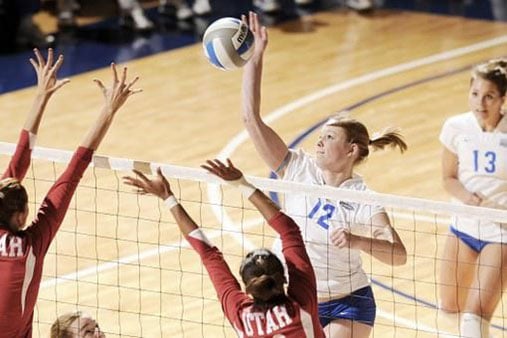Women’s Rights Law and Contracts Law It’s What We Do

By Marisa Kindberg, Staff Writer
We approach the one year anniversary, July 1, 2021, when the NCAA (National Collegiate Athletic Association) announced a long-anticipated rule change that would allow collegiate athletes to accept sponsorship deals for the first time. The new rule allows a female college athlete to legally accept payment for the use of his or her name, image, or likeness (“NIL”) in working with brands. A study completed in April 2022 by Opendorse, a technology company specializing in athlete endorsements, found that in the year following the NCAA rule change, Women’s Basketball ranked second overall in NIL compensation.[1]
This rule change has proven to be particularly significant for women in college athletics, as women have historically had fewer opportunities to profit off her respective sport and make a career out of it. Notably, the Opendorse study showed that women’s athletics made up three out of the top five earners for compensation with Women’s Basketball at number two, Women’s Volleyball at number four, and Women’s Softball at number five.
These developments confirm a big shift in women’s sports – skilled female players are leveraging their popularity to take more control of their financial destinies. Like Hollywood stars they are using social media to build a fan base beyond the boundaries of their states, schools or teams.
But, despite this progress, there is currently no federal law governing a student athlete’s ability to profit from his or her name, image, or likeness. Accordingly, students must follow their respective state’s NIL law if the state has an active law, or any institutional and conference policies.
New Jersey Law
In New Jersey, the “Fair Play Act” was enacted on September 14, 2020 in preparation for the NCAA rule change. Specifically, N.J.S.A. 18A:3B-87 details the rules regarding a student’s right to earn compensation based off their name, image, or likeness while participating in collegiate athletics. In particular, the law provides several protections for students:
- A four-year college or university may not prevent a student from earning compensation.
- Compensation may not affect the student’s institutional scholarship eligibility, and scholarships may not be considered compensation. Additionally, scholarships may not be revoked because of the student’s earning of compensation or obtainment of professional representation.
- Four-year colleges and universities may not provide a prospective student athlete with compensation in relation to his or her name, image, or likeness.
- Four-year colleges and universities may not prevent student athletes from obtaining professional representation, including athletic agents, or legal representation provided by attorneys.
Additionally, the New Jersey law puts limits what sponsorship deals a student athlete may accept. Student athletes are prohibited from earning compensation in connection with “any person, company, or organization related to or associated with…adult entertainment products and services; alcohol products; casinos and gambling, including sports betting, the lottery, and betting in connection with video games, on-line games, and mobile devices; tobacco and electronic smoking products and devices; prescription pharmaceuticals; a controlled dangerous substance; and weapons, including firearms and ammunition.”.
Of course, this law applies to both women and men and there will be a gap between the financial benefits available to them. Men’s college football and basketball are near the top of the most popular spectator sports overall.
But as women’s sports, led by athletes at the professional and Olympic level, continue to grow, the NCAA rule change provides a significant new opportunity for collegiate women to profit from and make a sustainable career out of their respective sport. As such, it is important for women to know their rights regarding what sponsorship deals they can or cannot undertake, as well as their rights against prohibitions or limitations from their four-year college or university.
Marissa Kindberg is a recent graduate of Rutgers University-Newark, where she was a member of the Rutgers Italian American Law Student Organization and was the Research and Technologies editor for the Women’s Rights Law Reporter.

